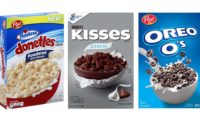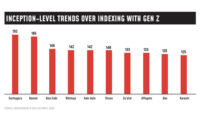Gen Z, Millennial Consumers Favor Organic Foods & Beverages
Organic produce, meat, and packaged foods among those most popular with adults under age 40

The prevailing demographic of organic consumers skews in two directions. Most obvious are consumers who are upscale (including higher educational attainment and household income). Less obvious are younger adult consumers of the Gen Z (ages 18-24) and Millennial (ages 25-39) generations, reveals Packaged Facts in the new market research study Eating Trends: Generational Food, the final report in a five-part Eating Trends anthology.
“Millennials and younger members of Generation X tend to be the biggest users of organic foods, and much more likely than average to agree that they especially look for organic or natural foods when they shop,” says David Sprinkle, research director for Packaged Facts.
Packaged Facts reports that young people also are more likely to have young children in the home, a key demographic for organic eating. In general, usage of organic drops off at the 55 and over age brackets.
Adults under age 40 are especially prone to value healthy, premium, and fresh foods, including organic produce and meat. Younger consumers including Gen Z, Millennials, and younger members of Generation X are the most likely to say they tend to buy organic produce to varying degrees. As Gen Z in particular obtains a higher income, often after graduating from college, they are expected to partake of more organic produce and become more significant buyers.
Core consumers of organic meat, like those of other organic products, tend to be younger, have children in the household, and have higher household incomes. Peripheral organic meat buyers are more price sensitive and tend to buy organic meat when it is on sale. Despite having relatively lower incomes, adults Gen Zers and Millennials show slightly more frequent purchasing of organic meats, being more likely to perceive organic meats or meats with premium labels—such as “naturally raised”, grass fed/pasture raised, antibiotic/steroid/hormone free, and no preservatives—as tasting better and being healthier than conventional meats.
Gen Zers and Millennials are also disproportionately represented among purchasers of organic packaged foods, in part because they tend to prioritize better-for-you snacks. Millennials are the most likely purchasers of organic packaged foods.
Looking for a reprint of this article?
From high-res PDFs to custom plaques, order your copy today!





